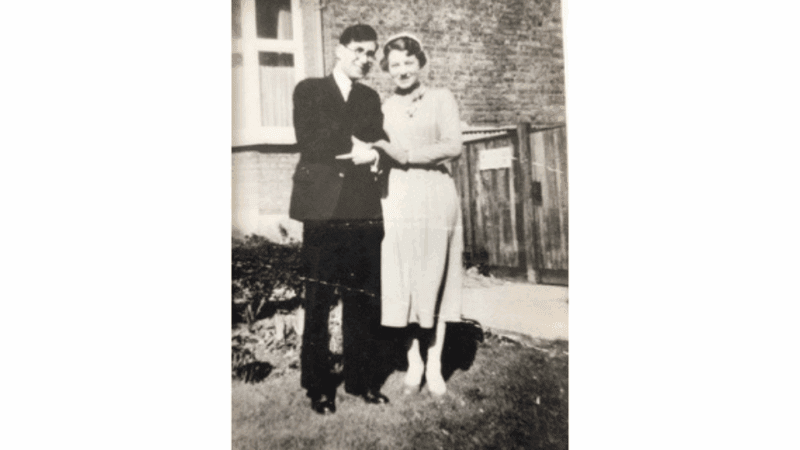
Sarah’s story – “Dementia UK was our saving grace”
Sarah reflects on reaching crisis point when her husband, David, was diagnosed with young onset dementia and the support her family have since received from Dementia UK.
If someone has signs of dementia or has recently been diagnosed, they and their family and friends may have difficulty processing this. This may lead to denial and a lack of insight.
Denial is the refusal to accept the reality of a situation. It is a defence mechanism that helps people manage their fear and anxiety around difficult situations.
Denial is very common in people who are showing signs of dementia, and their family and friends. They may be unwilling to acknowledge the possibility of dementia and try to find another explanation, such as normal ageing, tiredness, health problems or stress.
Denial is also common in people who have recently been diagnosed with dementia and their families. For example, they may believe that they have been misdiagnosed, or in the case of younger people, that they are too young to have dementia.
Reasons for denial around dementia include:
Denial can be a particular issue if the person is younger, as many people wrongly assume that dementia is a condition of old age; or if they have a rarer form of dementia, where memory loss may not be one of the early symptoms.
In some forms of dementia, such as frontotemporal dementia, the part of the brain that controls insight can be affected. This may mean the person lacks awareness of their own dementia symptoms, such as changes in their behaviour.
Lack of insight generally gets worse over time and can cause frustration and distress for family, friends and colleagues – for example, if the person is reluctant to seek a diagnosis or accept support.
If a person with signs of dementia and their family are in denial about what is happening, it can lead to:
Often, people who are in denial will eventually come to accept their dementia symptoms or diagnosis, so give them time to talk about their worries, listen to what they are saying and respond accordingly.
If the person is reluctant to see their GP, you could explain that their symptoms may be due to another condition that could be treated; and that if it is dementia, putting support in place promptly could help them maintain their independence and quality of life.
You could also contact their GP explaining your concerns. They will not be able to discuss the person’s medical care with you but may call them in for a health check.
You could ask another family member or friend to speak to the person – they may be more willing to listen to someone who is slightly detached from the situation.
Think about solutions to the issues that the person is concerned about – if they can see ways around these problems, they may be able to work through their denial.
For example, if they are worried that they will have to stop driving, you can explain that many people with dementia can continue to drive for some time.
Or if they are concerned about having to give up work, you could look into adaptations that their employer could put in place so they can keep working.
If family members are in denial about the person’s dementia symptoms or diagnosis, make time to explain what you are concerned about. You could keep a diary of symptoms to show them, or give them our information on signs of dementia and the different types.
If a child or teenager is struggling to accept a dementia diagnosis in a family member – particularly a parent – ensure you explain the changes in age-appropriate language and give them time to talk. There are lots of books to help them understand dementia.
If you are having difficulty accepting a dementia diagnosis in a loved one, support is available. You can speak to your GP, join carers’ groups, or contact our dementia specialist Admiral Nurses – please see Sources of support for details.
It can be very difficult for families to cope with a lack of insight in the person with dementia, but these tips may help:
To speak to a dementia specialist Admiral Nurse about denial, lack of insight or any other aspect of dementia, please call our Helpline on 0800 888 6678 (Monday to Friday 9am-9pm, Saturday and Sunday 9am-5pm) or email helpline@dementiauk.org
To book a phone or video call with an Admiral Nurse, please visit dementiauk.org/book
Our virtual clinics give you the chance to discuss any questions or concerns with a dementia specialist Admiral Nurse by phone or video call, at a time that suits you.

Sarah reflects on reaching crisis point when her husband, David, was diagnosed with young onset dementia and the support her family have since received from Dementia UK.

Jo reflects on the support she has received from her Admiral Nurse, Liz, since her husband was diagnosed with dementia.

Kerry reflects on her mum's dementia journey and her experience doing two of Dementia UK’s virtual event challenges.